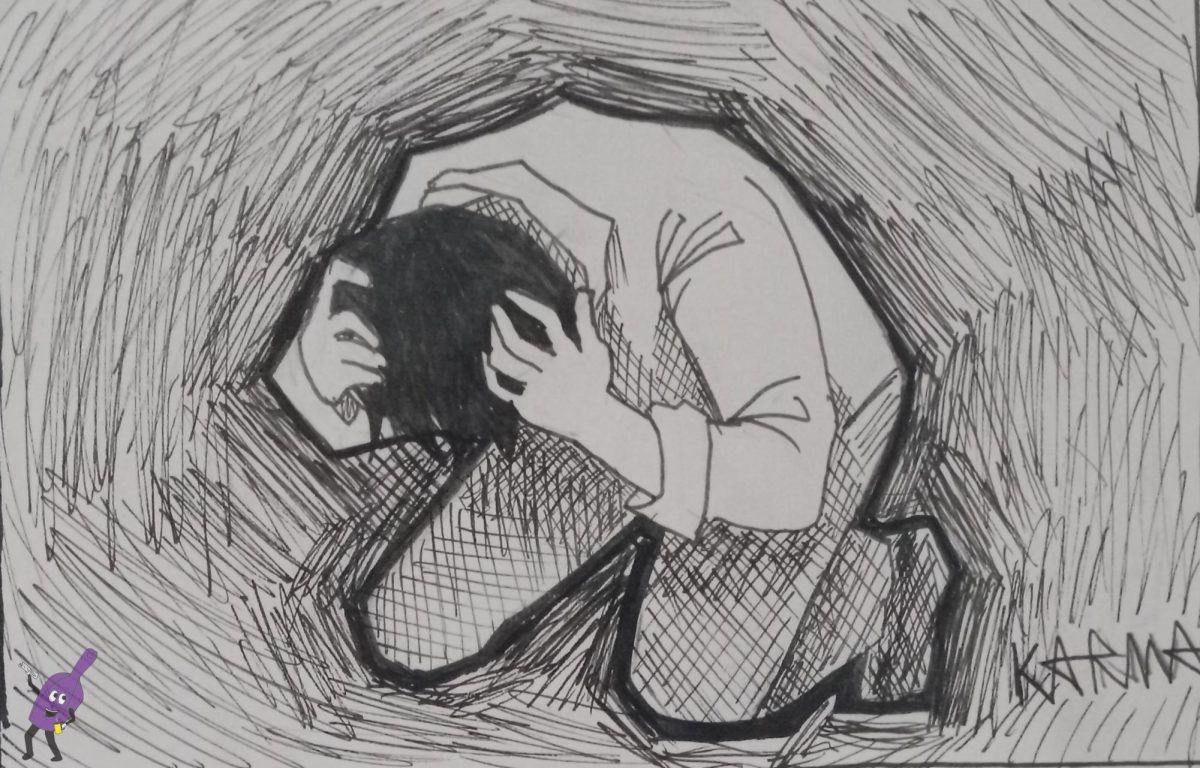Mental health struggles have increased among teenagers in the last several years with highs in adhd, depression and anxiety. These disorders affect the lives of millions on a daily basis and can be difficult to cope with. Here at the Spartan Scoop we find value in understanding how individuals manage their own mental health. This four part series will explore the coping mechanisms of three different teens to better recognize the lives of those grappling with anxiety.
The Sentinel Student*(T.S.S) sits cuddled up in a fuzzy blanket, slightly rocking in a wheely chair while drinking a hot cup of coffee. The room is dim in a comforting sort of way and the overall air of the room feels positive if not a little silly.
When asked how T.S.S. would describe their relationship with anxiety they were quick to state that it was rather negative or “Up and down. Pretty bad. We don’t get along.” Though this had a playful tone reflected there was an air of sincerity to the remark. The Sentinel Student has struggled with anxiety issues their whole life. They feel that they have been stressed since they were just a little kid, but that things took a particular decline when they entered middle school.
As the social environment changed and the courses became slightly more challenging T.S.S. found it difficult to grapple with their mental state in grades six through eight. These changes led the student to form what they consider unhealthy ways of coping. They would often retreat to a book and dissuade themselves from reality imagining they were somewhere else. Additionally, they would compartmentalize their struggles pushing them down until they rose into a greater anxiety. This would often come with a “I’m perfect, I’m perfect, I’m perfect” mantra forced on themselves says The Sentinel Student.
With the passing of time T.S.S. feels they have found new ways of coping that simply work better for them. This includes advocating for themselves in public spaces, like school, where they let others know that their anxiety can impede their daily life and they may need time to adjust. They still read, but do not allow themselves to slip too deeply into it; and they listen to music they find relaxing in moments of panic.
Each of these coping mechanisms they pulled from those around them growing up. T.S.S.’s mother often reads to escape, and they have several recollections of their older brother
putting headphones over their ears for comfort in intense situations.
Another strategy that T. S.S. has learned and feels strongly about is meditation. “It sounds cliche, and it was something I used to be very against. I [thought it didn’t] help me, [that it] left me alone with my thoughts and [made] my anxiety worse.” The misconception that meditation is one thing left The Sentinel Student particularly irritated. Sitting down for a guided meditation session did not help calm them. “It’s different for…every person, how you meditate, and I had to find…methods that are grounding for me.”
“Meditating for me is going outside, being away from people…in nature and just breathing and listening to the wind, birds, trees, and focusing…on that.” Having this set idea of sit-down, guided meditation did not work for The Sentinel Student, it stressed them out further because they couldn’t “Perfect it”. Finding a non-traditional method that feels productive to T.S.S. has been a huge help. Because meditation is a personal experience, T.S.S. suggests that “You need to find something that works for you” even if that is not within the typical expectation. If you can find out how to best do it for yourself, then you can more easily get to the root of your anxiety and figure out why you feel as you do.
Generally T.S.S. feels this way about any version of coping; that it is up to the individual to find what helps them. “Every single person is different, for me I like to stress bake…but [for] a lot of other people that doesn’t work.” The Sentinel Student can also recall people who can sleep their stress away (but that has never worked for them). The way you cope is up to you.
In a world that is changing constantly, it is important to examine whether or not we as a society make space for those struggling with mental health issues. The Sentinel Student feels that in broad terms they feel like they do not have the ability to cope free from judgment, or without issue from others. T.S.S. can recall many times where they would be in public and overwhelmed and would need a minute to re-adjust, but were not provided that luxury. “You’re out to eat…seeing live music, or going to a movie and you know you’re not…supposed to get up and walk out.”
Not only do they feel societal pressure to sit with their anxiety, but they also feel that social media has had a negative effect on those wrestling with anxiety issues. T.S.S does not wish to say social media is inherently evil, however, they did experience a destructive mentality after re-downloading certain apps after years of a break. The harmful standards teens are compared to online, where they are expected to be an unrealistic version of themselves, reflected negatively on T.S.S’s self image and mental state.
When asked if they felt if the original biological intent behind anxiety on one’s body still had its uses today, The Sentinel Student could see little merit behind it. “Having that sense of trepidation going into a situation you are unfamiliar with is important…but I think we developed anxiety when we were…at large still existing in the wild in situations that were literally life or death.” They believe that anxiety may be helpful when they are walking home late at night, but when it prevents them from getting out of bed in the morning they feel it does more harm than good.
In the future T.S.S. would like to have a better relationship with their anxiety. “My ideal relationship with anxiety would be something where I am able to go out and do the things that I love to do, and exist in the world…having fun.” To have the stress of small things in their day-to-day life taken away is a goal of The Sentinel Students. They hope to work towards that freedom for a less stressful future.
*For the comfort and safety of those interviewed all subjects of this series will remain anonymous.





